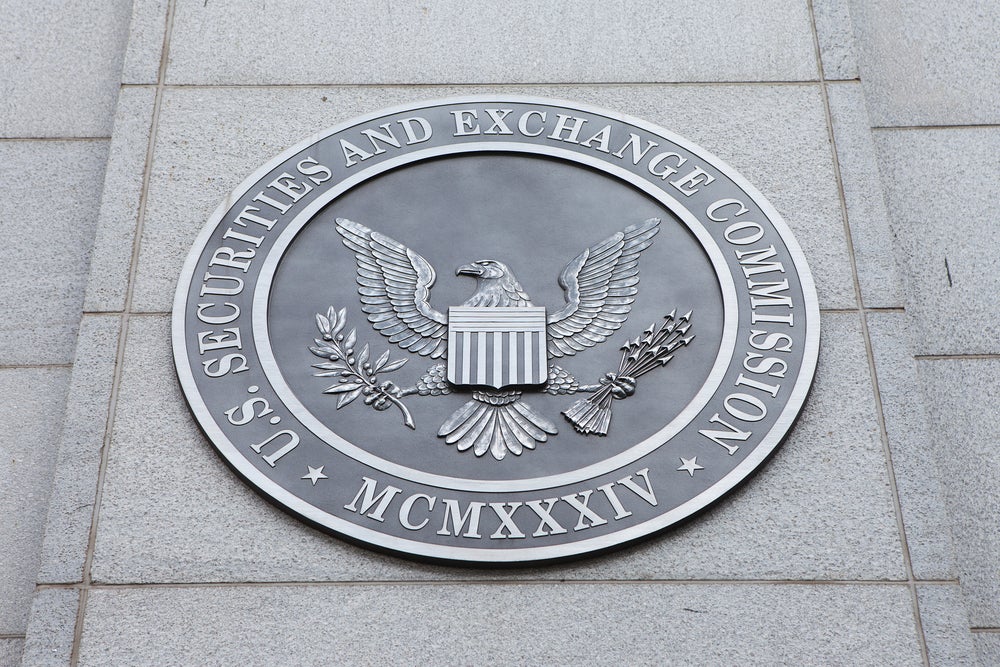
The US Securities and Exchange Commission (SEC) wants to police the crashing cryptocurrency industry. Semi-new chair Gary Gensler has publicly argued that the Wild West of blockchain bullion must be tamed, urging Washington D.C. to give him power to sheriff the industry.
However, the SEC’s new investigation against crypto exchange Coinbase suggests that the financial markets watchdog is tired of waiting on the wheels of politics to move.
Coinbase found itself in the SEC’s crosshairs in July. That was when the regulator charged a former Coinbase employee for insider trading. The US Department of Justice filed a separate charge against the former employee and his associates.
The key difference between the two regulators’ approaches was that the SEC defined nine out of the 25 out of the cryptocurrencies traded as securities, which means they would be fungible and tradable financial instruments used to raise capital in public and private markets. This would open up for the SEC to regulate cryptos in a new way.
“We are not concerned with labels, but rather the economic realities of an offering,” Gurbir S. Grewal, director of the SEC’s division of enforcement, said at the time “In this case, those realities affirm that a number of the crypto assets at issue were securities, and, as alleged, the defendants engaged in typical insider trading ahead of their listing on Coinbase.”
Coinbase quickly rejected the notion. Paul Grewal, chief legal officer at Coinbase, inked a blog denying that the company enables its users to trade with securities on its platform.
How well do you really know your competitors?
Access the most comprehensive Company Profiles on the market, powered by GlobalData. Save hours of research. Gain competitive edge.

Thank you!
Your download email will arrive shortly
Not ready to buy yet? Download a free sample
We are confident about the unique quality of our Company Profiles. However, we want you to make the most beneficial decision for your business, so we offer a free sample that you can download by submitting the below form
By GlobalData“[We], respectfully, 100% disagree with the SEC’s decision to file these securities fraud charges and the substance of the charges themselves,” he wrote.
Grewal claimed that only seven out of the nine assets included in the SEC charges were listed on Coinbase’s platform, but that “[none] of these assets are securities.”
He argued that “Coinbase has a rigorous process to analyse and review each digital asset before making it available on our exchange” in order to ascertain whether a cryptocurrency should be considered a security or not.
The Coinbase executive said he had been shocked that the SEC had “jumped directly to litigation” without having a dialogue with the exchange first.
“The SEC’s charges put a spotlight on an important problem: the US doesn’t have a clear or workable regulatory framework for digital asset securities,” Grewal said. “And instead of crafting tailored rules in an inclusive and transparent way, the SEC is relying on these types of one-off enforcement actions to try to bring all digital assets into its jurisdiction, even those assets that are not securities.”
The SEC securities suit is about the future of cryptocurrency regulations
Coinbase isn’t alone in pushing back against the SEC defining cryptocurrencies as securities. Caroline Pham, commissioner at the US Commodity Futures Trading Commission (CFTC), issued a statement labelling the case as a “striking example” of “regulation by enforcement.”
“The SEC’s allegations could have broad implications beyond this single case, underscoring how critical and urgent it is that regulators work together,” Pham said.
It should be noted that the CFTC commissioner’s comments comes on the back of reports indicating that a turf war is brewing between the CFTC and the SEC about which regulator should be the primary crypto watchdog.
In August 2021, then-CFTC commissioner Brian Quintenz tweeted that “the SEC has no authority over pure commodities or their trading venues, whether those commodities are wheat, gold, oil or crypto assets.”
The CFTC has previously rejected the notion that the two agencies are clashing over cryptocurrencies, referring to it as a “media trope”.
Should the SEC define some cryptocurrencies as securities?
The SEC’s latest move has shaken the market. Industry stakeholders and crypto watchers have offered a mixed bag of views on the matter.
On the one hand, you have crypto purists. They fear any active policing of the sector. Blockchain bros argue that regulatory scrutiny would run counter to the deregulated and decentralised ideals of the industry. Those views are nothing new; they have influenced the industry ever since bitcoin’s elusive founder Satoshi Nakamoto first inked the white paper that set the whole market off.
“It would be a disaster if all crypto were defined as security,” Dan Da Rosa, CEO and co-founder of crypto company ETHAX, tells Verdict, arguing that most tokens wouldn’t be able to survive the strain of regulatory scrutiny.
On the other, there are those who welcome regulation. This camp believes that it is inevitable that agencies like the SEC would end up policing the industry. They embrace stricter sheriffing and the resulting purge of so-called memecoins and shitcoins, speculative tokens with no real value, it would result in.
What both camps agree on is that if the SEC would get the power to regulate cryptocurrencies like securities, then it would change everything.
“We would witness an epic cultural clash between the unregulated world of crypto and the SEC, most likely removing large parts of the industry,” Peter Woeste Christensen, director at risk consultancy Lucht Probst Associates, tells Verdict.
What are securities?
To understand what’s going on here, we need to explain what securities are. To do that, Verdict turned to Flavia Kenyon.
She is a barrister at law firm The 36 Group and specialises in crypto questions. She explains that a security is a contract involving an investment of money into a common enterprise with the expectation of profits from others.
That may sound reasonably clear, but you may find it difficult to use that definition on some of the biggest digital assets in the world.
“By way of example, buying bitcoin or ether may be an investment of money,” Kenyon tells Verdict. “It may even involve an expectation of profits if the intention of the buyer is to hold the cryptocurrency rather than to use it to buy goods and services.
“But one would be hard pressed to argue that a cryptocurrency network is a ‘common enterprise’ when the roles and intentions of its users are so varied. Furthermore, the profits from holding and using cryptocurrencies do not accrue from ‘the efforts of others’ but rather from the cryptocurrencies’ usefulness, or functionality on the network. So, arguably, those who most obviously profit, namely the miners, do so from their own efforts at validating transactions.”
It’s thus understandable why some industry watchers argue that cryptocurrencies wouldn’t fit into the securities definition that the SEC is pushing for.
However, that doesn’t mean that the law won’t change. It wouldn’t be the first time legislation has changed to better fit in with modern technology.
If cryptoassets would be defined as securities, then it would create new obligations for the industry. It would mean tighter rules on which investors could buy and hold digital dosh, what companies can deal with them, and it would require extensive red tape for people to cut through.
In short, it would put the screws on anyone wishing to buy, sell, hold or otherwise facilitating the trade of cryptocurrencies, which explains why many industry stakeholders are opposed to it.
That being said, several experts we’ve spoken with sympathise with the SEC’s point of view.
“[The] SEC wants to make sure that the crypto world is not doing anything that is illegal,” Dennis Sahlström, head of the trading and coaching department at investment consultancy Investment Mastery, tells Verdict.
“If the projects are raising money from the public or even institutions and claim that there might be a price appreciation – it can be [classified] as a security and then they cannot collect money from the general public, but only from professional investors or accredited investors.”
SEC is not alone in regulating the market
The SEC may be the clearest example of a regulator looking to police the crypto industry, but it is hardly the only one.
Over the past few years, more and more countries have introduced tougher rules on the industry.
In September 2021, Beijing banned cryptocurrency transactions and mining in China, including outlawing overseas exchanges from providing services to the country’s citizens.
Around the same time, South Korea introduced stricter rules that slashed the number of crypto exchanges allowed to operate in the country from 60 to only four.
Then in November, it was revealed that India was working on a similar crypto ban.
In March this year, news broke that Thailand was set to prohibit the use of cryptocurrencies as way to pay for goods.
Coinbase woes continues
Coinbase was already suffering before the SEC filed its suit. Just like other companies in the sector, it has taken a battering this year from the ongoing crypto winter.
For starters, it has suffered in the stock market. Since going public via a direct listing in April 2021, the market capitalisation of Coinbase has fallen from $57.7bn to $20.5bn as of the beginning of August.
While the crypto crash has certainly contributed to the company’s problems, it is clear that the SEC suit is exacerbating things.
One of the exchange’s biggest shareholders, Ark Invest CEO Cathie Wood, dumped her some $4m in Coinbase stock in July, citing the SEC suit as a key contributing factor.
Following the SEC suit, it was slammed with a class action lawsuit that alleged that Coinbase knew it listed digital assets which should have been registered with the SEC.
GlobalData is the parent company of Verdict and its sister publications.







